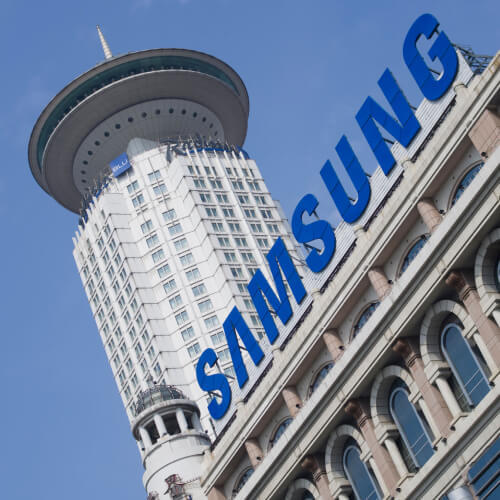Samsung tackles sins of emission with $50B R&D package
South Korean behemoth targets Scope 1 and Scope 2 net zero carbon emissions across all its global operations by 2050.

Samsung Electronics has unveiled a new environmental strategy aimed at achieving "net-zero carbon emissions" from "all global operations" by 2050.
To help reach that target the South Korean company says it will invest over 7 trillion Korean won (US$50 billion) in environmental initiatives by 2030.
Money will be spent on reducing process gasses, conserving water, expanding electronic waste collection and reducing pollutants. The investment figure, Samsung adds, excludes costs related to expansion of renewable energy use.
Samsung says it will also make "an enterprise-wide effort" to enhance "resource circularity" throughout the entire product lifecycle, from raw material sourcing through to recycling and disposal.
Figure 1:  Samsung targets Scope 1 and Scope 2 net zero carbon emissions across all its global operations by 2050.
Samsung targets Scope 1 and Scope 2 net zero carbon emissions across all its global operations by 2050.
(Source: Chris Willson/Alamy Stock Photo)
The company also plans to explore carbon capture and utilization technologies and tackle harmful airborne particulate matter.
Moreover, Samsung has signed up to the RE100 initiative, which brings together corporate heavyweights committed to working towards 100% renewable electricity in their operations. Nokia is already a member.
Timelines laid out, but no firm commitment on Scope 3
Samsung's focus is to achieve "net zero carbon emissions" – the definition of which is pretty hazy, hence the mitigating quotation marks (Ed note: OK, point made, no need for them anymore) – for all operations in its device eXperience (DX) division by 2030.
The DX division encompasses the company's consumer electronics businesses, including mobile eXperience, visual display, digital appliances, networks, and health and medical equipment.
The 2030 target covers Scope 1 and Scope 2, the former referencing a company's direct emissions from owned or controlled sources, and the latter covering indirect emissions from the purchase of power and cooling systems.
Want to know more? Sign up to get our dedicated newsletters direct to your inbox.
Scope 3 covers all other indirect emissions that occur in a company's value chain, but was not something to which Samsung attached any fixed timeframes or targets. It only, somewhat vaguely, said that it "will set mid- to long-term reduction targets for value chain emissions."
Further down the line, in 2050, Samsung is targeting Scope 1 and Scope 2 net zero carbon emissions across all global operations, including its device solutions (DS) division. The DS division includes the memory, system LSI and foundry businesses.
"Samsung is responding to the threats of climate change with a comprehensive plan that includes reducing emissions, new sustainability practices and the development of innovative technologies and products that are better for our planet," asserted Samsung Electronics' CEO Jong-Hee Han.
Related posts:
— Ken Wieland, contributing editor, special to Light Reading
Read more about:
AsiaAbout the Author(s)
You May Also Like











